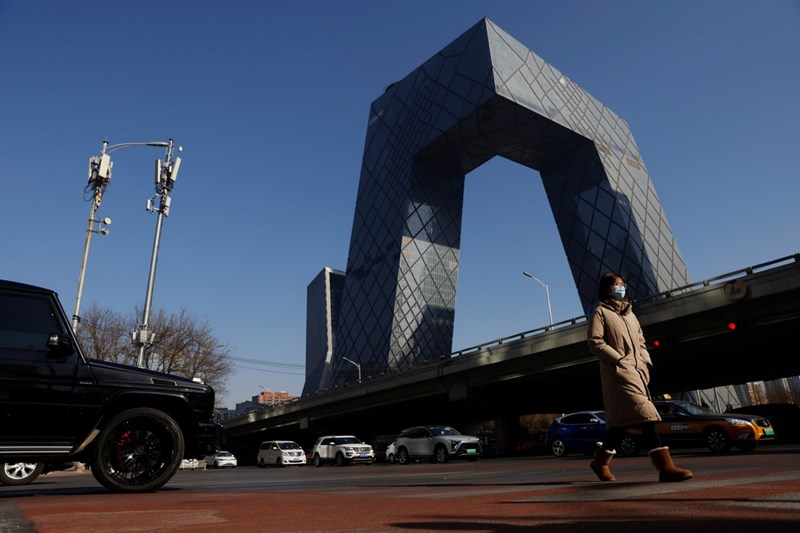Fear and favor prompt UK partisan attack on CGTN
The CCTV headquarters, the home of Chinese state media outlet CCTV and its English-language sister channel CGTN, in Beijing, China on Feb 5, 2021. (Photo/Agencies)
The reason the UK communications watchdog Ofcom has given to justify its revocation of broadcasting license for China Global Television Network in the United Kingdom may appear to be au fait, but in reality the decision is pure political manipulation, exposing its ideological bias.
The move not only exposes Ofcom's double standard on press freedom, but more importantly deprives people in the UK of a source of impartial, objective and balanced reporting.
CGTN's detachment from the UK government stance undoubtedly diversifies the information available to people in the UK and contributes to their right to know.
But the ruling of Ofcom has disregarded CGTN's reputation as a professional international media organization and its 18-year good record of broadcasting in the UK based on the so-called political nature of CGTN as portrayed by extreme right-wing organizations and anti-China forces.
The duplicity of the UK communications watchdog is self-evident. Ofcom has turned a blind eye to the biased reporting of the British Broadcasting Corporation on Chinese people's tremendous efforts to fight the novel coronavirus which the Chinese Foreign Ministry has described as "typical ideological bias".
By muffling voices from other countries and tolerating fake news from its own broadcasters, the watchdog is failing in its duties-acting against its duties to be precise-as it is not defending diversity and professionalism, but the monopoly of its "mainstream" media outlets.
Take BBC's unprofessional coverage of China's fight against COVID-19 as an example. With the preconceived conclusion that China engaged in a cover-up, all its field research and post-production have been dedicated to presenting that point of view. There has not even been the pretense of objectivity. It is not reporting what it sees, but what it wants its audience to see.
That is typical of some Western media's reporting on China. It is an open secret in the industry that if frontline reporters of these organizations send back positive or even neutral reporting on China based on their interviews in the country, their editors at home will not run the reports. It is political correctness for these media organizations to paint China in a negative light, as if the country's difference is an "original sin" for which there can be no atoning.
Such prejudice has created a stereotype of China that some Western media are dedicated to perpetuating. After being presented with this image for so long, their audiences take it for granted that what they see from their own media is a true representation of the country. That is why China tries to send its voices out to present a true picture of the country, and report what is happening in Western countries and world affairs from a different perspective.
But that has made these Western countries feel uncomfortable. With their monopoly on global communications threatened, their control of how countries are portrayed is in jeopardy. Thus they are now trying to gag any media outlet that offers a different viewpoint.
What they fear is not only the different voices that, if unchecked, might expose to their own people their lies about the world, but more importantly their hypocritical nature.
CGTN, along with many other media outlets from non-Western countries, has promoted mutual understanding and trust among peoples. To politicize these efforts will only harm Sino-UK relations. And China has every reason to reserve its right to retaliate.